There is a big hole in SsangYong’s network – Greater London.
As a niche franchise, SsangYong struggles to find representation in the capital. Many of the small dealerships that once could have accommodated the five-model brand inside the M25 have been demolished in favour of more lucrative housing projects. The remaining franchised dealers, with larger, modern showrooms, generally want to slot in a higher-volume brand that can cover the overheads more effectively.
The South Korean carmaker knows it has prospective buyers in London, people who have visited its website after seeing its marketing only to give up when they find no showroom nearby.
However, SsangYong Motor UK launched a project this autumn that may provide a solution. It is funding its own ‘SsangYong customer champions’, each currently completing a six-week training programme, covering all aspects from prospecting and sales processes to FCA compliance and handovers.
SsangYong will embed each champion, equipped with some demonstrator cars, into a network of authorised repair workshops located near to the M25 corridor: Kings Langley, Barnes, Edgware and Croydon, with another location to come in west London, near Heathrow. From there, they will follow up leads and take demonstrators out to prospective customers in their assigned postcode areas. They will take orders at the customers’ locations or back at the service centre, and will complete comprehensive vehicle handovers, most likely at the service centre, so that the customer knows who will be looking after their car in future.
“In this country, it’s about specialism and volume and professionalism. As the costs have gone up in the UK, some of the things – not just the premises, but the number of staff and working capital – are levels of investment that are beyond a privately owned company,” said SsangYong Motor UK chief executive Paul Williams.
“That’s one of the reasons the UK has been more of a challenge. A small brand that has not historically done that well, we are trying to establish dealers. Where we have, we have generally done it very well. We just need more of them.”
SsangYong is currently training four customer champions, and will continue to fund their salaries once embedded. As well as operating from the service centres, the team will also help the carmaker elsewhere, such as manning its displays at caravan shows and at pop-up stores in major shopping centres. More champions will be added as it progresses – the programme is intended to remain flexible for the modern market.
Williams said it is “fascinating why these big brands keep demanding more and more stainless steel and glass premises, when research tells you people don’t go there”.
He acknowledged that one reason SsangYong can experiment with new routes to market is that it doesn’t have the legacy of a long-established large network of expensive showrooms. Yet the small scale of its franchised network has also caused problems for the carmaker.
Brand awareness was very low – among consumers, but also among the motor trade. However, SsangYong has been shown more interest since it has been using TV marketing and events and its vehicle parc has grown. Recent recruits to the 54-strong network include Desira Group in Norwich and former Kia franchisee Stanley Cars in Bradford, and it expects to start 2017 with 65 dealerships in total and reach 75 further ahead.
Williams said the network expansion is pragmatic, in line with SsangYong’s medium-term ambitions for 10,000 annual sales (double what it hopes to end 2016 with – to the end of October, it had 4,025 registrations, according to the SMMT).
“We want to sell enough per dealer to make sure that they make enough money and they’re excellent at what they do. I’d rather have 75 dealers selling 150 each, than 125 dealers selling 100, because you’ll get centres of excellence, you’ll get profitability, you’ll get investment, you’ll get delight from the customer, rather than more dealers trying to compete with each other.”
The M25 initiative is designed to complement the network’s structure. Williams said it may mean the network peaks at 75 outlets, but that’s not necessarily a bad thing.
“If you get 75 dealers selling loads of cars and with busy workshops, the business model is probably more successful,” he said.
If the initiative works, it could be a new solution for niche brands seeking to cover high-cost major metropolitan areas, such as Manchester and Birmingham. Williams said the sales results will be measured and analysed for return on investment, but he has no defined finish line for the initiative – he’s certainly not expecting 1,000 sales in London next year.
“I have no idea honestly how well this will do. I know it’s the right thing to do. I know it’s worth doing as an innovation. Then we’ve got to be smart about tailoring it.”
SsangYong can take a longer-term view on it, because there are no fixed overheads on the project and the champions can be channelled in different ways.
Williams also hopes it will serve as a model for dealers’ own sales recruitment. The SsangYong customer champions, who report to Kevin Griffin, the carmaker’s head of retail, have been recruited from non-automotive technology retailing, are tech-savvy, and passed an assessment that identified their aptitude for the role. They are being paid a reasonable basic salary plus bonus linked to customer satisfaction.
Key SsangYong models
Sales are climbing quickly at niche 4x4 brand SsangYong, which has been among the top five growing brands in the UK for the past two years. Its 2016 volumes – 4,025 car and 215 LCV registrations to the end of October – are small compared with the likes of fellow South Korean brands Kia and Hyundai, yet for its network of 54 franchisees, many of which were previously used car retailers, the growth is a welcome challenge.

Tivoli
Newest in the car range, Tivoli and the expanded Tivoli XLV are SsangYong’s entry crossover SUVs, offered in 1.6-litre petrol or diesel versions. Prices start at £12,950.

Korando
Priced from £16,250, this crossover SUV is sold in 2WD and 4WD versions with a 2.2-litre diesel. Also offered in van form.

Rexton
The flagship 4x4 in the range, and a seven-seater too, Rexton is sold only with a 2.2-litre diesel, priced from £23,500. Also available as a van. A replacement is due in 2017.

Turismo
Also only offered with a 2.2-litre diesel, Turismo is a huge seven-seater 4x4
MPV with luggage space, so is favoured by taxi firms and rural large families.

Musso
With 4x4 drivetrain, a 2.2-litre diesel and a £15,995+VAT starting price, the new Musso pick-up targets SMEs seeking value for money.
Williams said: “What we’ve done here is invested time in a process, effort in a learning experience and knowledge base, and created a process that can be used nationally to augment and supplement the dealer network, because we know they need more people.”
In some cases, a customer champion could be put into a SsangYong dealership, with short-term salary support from the carmaker, if it could fill a staff shortage. Equally, it could provide a low-cost solution for a franchisee with a large territory to cover, if they were to embed a customer champion into a workshop elsewhere rather than immediately invest in a second showroom.
“We know we need to have better people in our showrooms generally, and have them better trained. They need to be able to live, sleep, breathe SsangYong, because when you’re small, you have to surprise people, you have to delight people. So we have to make sure we’re actually better than others.”
Alongside mystery shops and a customer survey programme, the brand is launching a training needs analysis of the franchised network followed by a leadership and development programme, accredited by the IMI, for its dealer principals. Williams hopes that doing so will ensure franchisees have the skillset for handling higher volumes of sales and finance.
The training is provided by ECR Training, headed by Mike Legge and Deborah Cooper. SsangYong’s own field team will go through the same training as the dealer principals.
“We know if we don’t develop the dealers, they will get to a point where they won’t go any further and our ability to expand will be stifled. The pipe of product, of routes to market, is expanding and I want to improve the dealers’ performance so they’ve got more capacity.” The more vehicles they sell, the more opportunity for increasing service and parts revenue and building a used car opportunity, he said.
One area SsangYong’s growth will come from is in sales to SMEs of both its cars and van derivatives. About 75% of SsangYong’s registrations are currently to private buyers, with the remainder being Motability, SME car purchases and commercial vehicles.
Now that the SsangYong network can offer a contract hire and leasing product, provided by Lex Autolease, and has launched the Musso pick-up, Williams expects the business market to take a larger share. “We won’t sell less retail, we’ll sell more of the others,” he said.
He acknowledged that the network needs to improve its skillset to sell to business users. While the process and product knowledge applies equally to retail and business customers, expertise in the acquisition method has not been a strong point in a franchise network created largely from strong used car retailers.
“They’re used to selling used cars and a few new ones, and along comes a customer asking ‘how do you treat the VAT on this thing’ and ‘what’s the benefit in kind’ or ‘can you organise a contract hire lease for me’. All of those things are a new learning process, a new environment.”
SsangYong UK recently relocated to a new headquarters after it outgrew its original base. The new property, still in the same business park near London Luton Airport, is home to parts distribution (shipments are received daily from the European parts centre in Holland), offices for its support staff and senior executives, and a training room.
The premises has its own working showroom full of demonstrators, and this outlet will be Motability-approved, and will support the customer champions. A service centre is due to be added nearby. It will also manage any significant fleet sales.
Williams concedes the showroom’s location isn’t ideal: “Maybe people would say we could be dealing with passing trade. What’s passing trade? Very few people visit showrooms these days, it’s always by appointment. So it’s about getting the communications out about what you offer, not necessarily where you are.”
A focus on prospecting
![]() As a small brand with a relatively small budget, SsangYong cannot afford to waste anything, said Williams. This is why prospecting is a crucial part of its training programme for customer champions. The carmaker’s marketing budget focuses on TV, digital, PR and events such as sponsorship of the South of England Horse Trials and Silverstone Classic.
As a small brand with a relatively small budget, SsangYong cannot afford to waste anything, said Williams. This is why prospecting is a crucial part of its training programme for customer champions. The carmaker’s marketing budget focuses on TV, digital, PR and events such as sponsorship of the South of England Horse Trials and Silverstone Classic.
“We try to do shows and events that generate leads. The more you do and the more you measure it, you can work out which bits work. And because we have these guys, we’re really going to sweat it down to find out if the customer is interested and if there’s a sale, and if not why not.
“We work on a basis that we need five leads for every one sale. And what we do know is that our strike rate for demonstration to order is very high, 50%, because with our product people are generally delighted or surprised when they get in.”
Lead responses have to be quick and informative, Williams said. Understand what the customer wants, equip them with what they want, even if that means customer champions work their shift responding on an iPad in the evening.

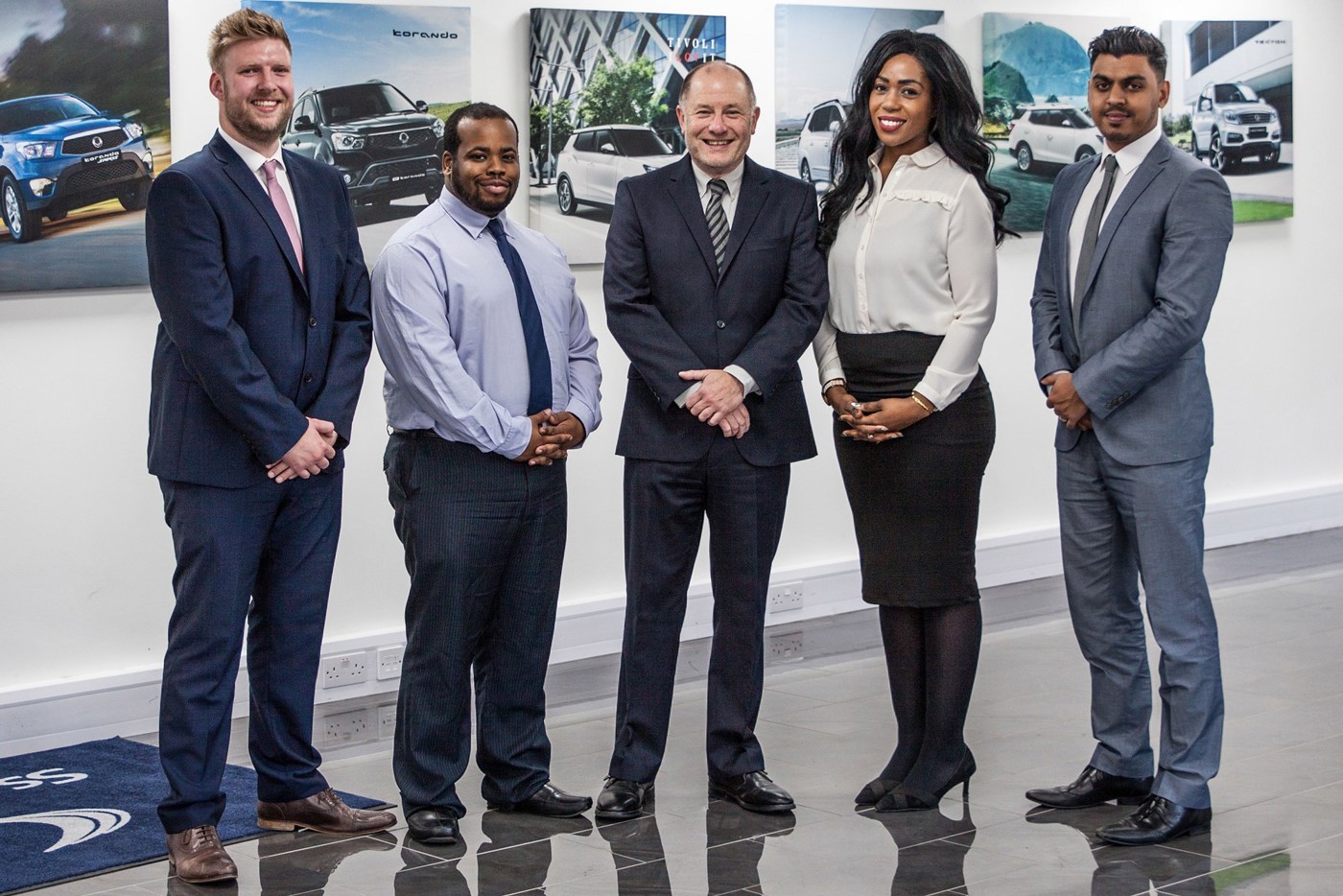



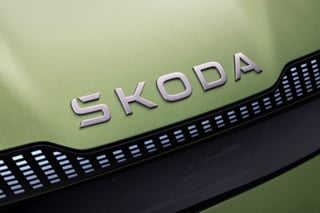

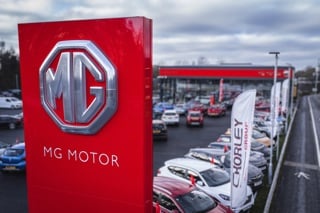
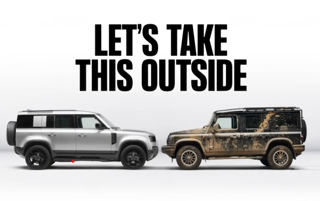
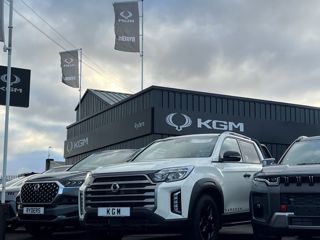












Login to comment
Comments
No comments have been made yet.